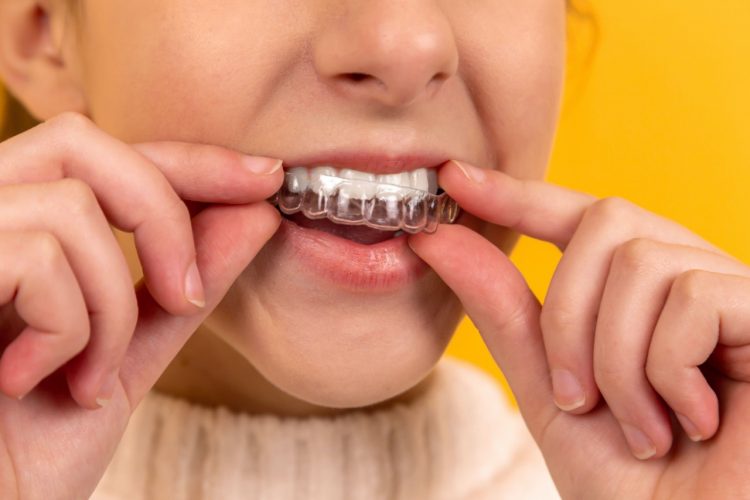If you’d like to straighten your teeth and achieve a healthy, beautiful smile, you may wonder whether you should opt for Invisalign or braces. There is no hard and fast answer to this question as it depends on your unique situation. To make it a bit easier for you to select the right treatment, we’ve compiled this list of pros and cons for both Invisalign and braces.
This braces vs. invisalign comparison will help clear your confusion and let you choose the perfect treatment for your teeth. Without further ado, here they are. Sterling Dental Clinic can help you create the perfect smile that you always longed for.

Invisalign
Invisalign has been approved by the FDA since 1998. It involves straightening teeth through a series of clear, plastic aligners.
Pros
Comfortable: Invisalign aligners made from smooth, flexible material that you’re sure to find comfortable. Unlike traditional braces, there are no metal wires or brackets that can irritate your lips and cheeks. At Sterling Dental Clinic, most of our patients find Invisalign the most comfortable orthodontic option.
Convenient: Since aligners are easy to remove, you can brush, floss, eat, and drink with ease. You won’t have to maneuver around wires and brackets or give up your favorite foods while undergoing treatment.
Precise: Our orthodontists use a special computer
program to plan your Invisalign treatment with extreme precision. You’ll know
exactly how long your treatment will take right off the bat.
Minimal
Time Commitment: Once you move
forward with your Invisalign treatment, you’ll only need to visit our office
for checkups and a new set of aligners every six weeks. This is great news if
you lead a busy lifestyle.
Cons
Self-Discipline Required: For optimal results, you must wear Invisalign aligners for at least 22 hours a day. If you don’t have the self-discipline to do so and take them out for long periods of time, you’ll delay your progress.
Initial
Speech Challenges: When you place your
aligners in your mouth at first, you may find it difficult to pronounce certain
words. It might take a few days to resolve any initial speech issues.
Braces
Traditional metal braces have been around for centuries. They are made of wire and brackets that are bonded to the front of your teeth.
Pros
Effective for Complex Cases: Time after time, traditional metal braces deliver exceptional results for even the most complicated cases. They can help you with misalignment, gaps, overcrowding, protruding, under-bites, overbites, cross-bites, and more.
Durable: Metal braces are incredible strength and
designed to withstand the daily wear and tear of brushing and chewing. In most
cases, they are made of titanium and steel, materials that are stronger than
ceramic and plastic.
Always
Working: Due to the fact
metal braces stay in your mouth at all times, they’re constantly working.
You’ll be able to stay on track with your treatment without much thought and
discipline.
Cons
Noticeable: Traditional metal braces consist of metal wires and brackets that are tough to conceal. You can expect for people to know that you are undergoing orthodontic treatment if you go this route.
Hygiene
Challenges: It may take some
time and practice to figure out how to brush and floss your teeth. At first,
you may have difficulties brushing and flossing. Our team of dentists at
Sterling Dental Clinic always suggest brushing twice a day and using Water-Pik
once a day.
Food
Restrictions: There are certain
chewy, hard, and crunchy foods that are off limits while you have metal braces
in your mouth. These include popcorn, corn chips, hard taco shells, taffy, gum,
and ice.

